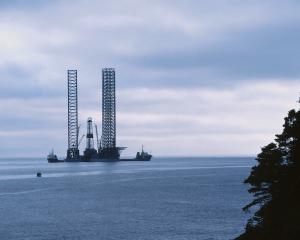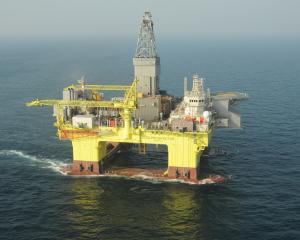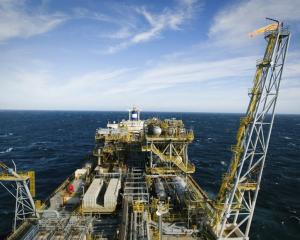
The Great South Basin has long been identified as a potentially significant area for oil and gas exploration in New Zealand. And while any decision on whether exploratory drilling may take place is some years away, Shell is focused on safety, the environment, and building constructive relationships with the community from the outset.
Shell has been investing in New Zealand for 100 years and has safely operated the offshore Maui natural gas field for more than 30 years in the challenging conditions off the coast of Taranaki in the Tasman Sea.
The safety of our staff and contractors comes first for us. Nothing is more important than sending each of our 300 workers home to their loved ones at the end of each day. We're also committed to minimising any potential effect on the environment from our operations. That's why our operating standard is Goal Zero, which means no harm to people and protect the environment.
We continue to spend millions of dollars and man hours ensuring that our safety and environmental systems are working as designed. We fully comply with New Zealand regulations but also follow best international practice. Our fields undergo extensive review and certification. We constantly check and recheck these systems and processes, along with engaging various regulators and community stakeholders.
We also have a comprehensive oil spill contingency plan in place in Taranaki, which outlines the steps required to deal with an oil spill at any level, and the infrastructure that would be used as part of that response.
Globally, Shell is a world leader in deep-water exploration and production. For example, our Perdido platform off the coast of Texas is the world's deepest oil and gas production platform, in more than 2500m of water. We have also developed deep-water fields in harsh weather conditions; for example, our Ormen Lange field off the coast of Norway. For comparison, the Great South Basin has depths of around 1200m.
We see the Great South Basin as an exciting opportunity to bring our local and global experience to a new region. As part of the joint venture, our focus is on ensuring that the seismic survey is carried out in a way that is technically robust, safe and environmentally responsible.
Data from the seismic survey will take some years to process and analyse, but if a decision is made to drill an exploratory well, our first priority will be to ensure that our safety and environmental systems are robust, to ensure that a spill does not take place and - in the very unlikely event that something untoward does happen - that we have the appropriate response capabilities in place.
Shell applies a multilayered well-control system designed to minimise risk in the drilling process, so if any one system or device were to fail, it should not lead to an uncontrolled situation. In addition, all our existing wells in deep water around the globe can be capped using a modular capping system owned by Shell. This system can be transported by air anywhere in the world.
Shell is also a founding member and operator of the Subsea Well Response Project, which is looking at options for enhanced international oil spill intervention.
Overall, Shell has been operating in the Gulf of Mexico for more than 30 years without a significant offshore well incident or oil spill. At offshore Maui here in New Zealand, we have been safely operating for more than 30 years without a significant discharge. We would bring this same focus on safety and the environment to any development in the Great South Basin.
More broadly, it's also important to consider the social and economic drivers for continuing to develop New Zealand's energy resources. In New Zealand and around the world, demand for energy continues to increase and by 2050 is expected to be, potentially, two or even three times higher than it is today, as growing populations continue to drive cars, switch on their heaters and use their computers.
Shell anticipates that renewable energy sources could supply up to 30% of global energy by 2050, compared with 13% today. But even then, fossil fuels will probably still supply around half of global energy in 2050, and still play an important role in New Zealand. A sustainable energy system cannot rely on renewable energy sources alone to meet a growing share of demand: cleaner fossil fuels such as natural gas will also need to play a more prominent role, providing a flexible back-up to renewables and, indeed, an essential part of the energy mix.
The potential economic benefits of new energy projects are also significant. New Zealand's oil and gas industry contributed about $2.5 billion to the nation's GDP in 2009 and provides about 4000 sector-related jobs, according to Venture Taranaki.
We respect that people have a right to express their view and agree that safety and environmental protection is the highest priority. We also recognise the regional aspirations for a potential future development and the economic benefits that would bring. In that context, we're committed to engaging constructively to balance those views.
Ultimately, our challenge and commitment is to explore and develop New Zealand's potential hydrocarbon resources in a safe and environmentally responsible manner.
• Asked by the ODT to include in this article observations on this month's oil spill from its North Sea Gannet Alpha platform, about 120km east of Aberdeen, Shell declined to comment.




